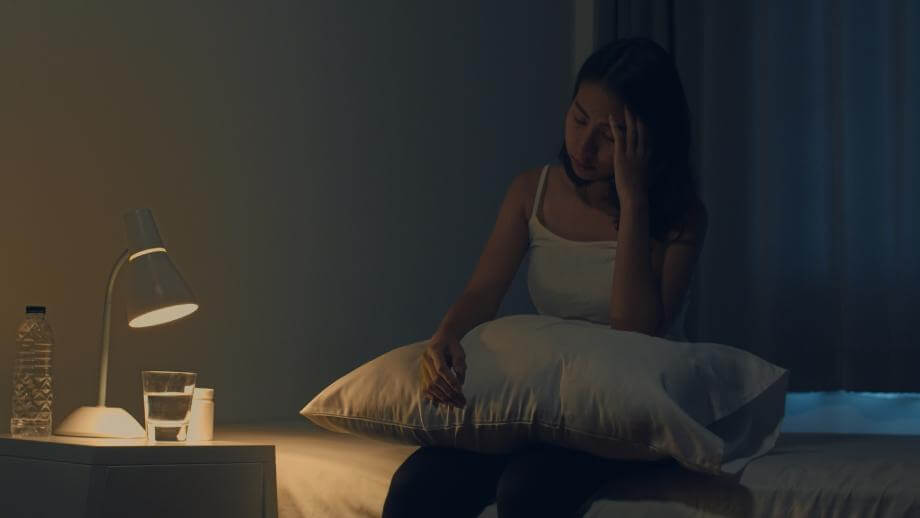Is it normal to urinate in the middle of the night?
Waking up during the night because you have to pee is a terrible feeling. Your sleep is interrupted, and the last thing you want is to get out of bed to go to the toilet. Yet, nocturia, the medical term for night-time urination, is common! In this blog, we explain what causes night-time urination and what you can do about it.

Bed-wetting is different from having to pee during the night. When you go to the toilet because you woke up, isn’t nocturia either. We only use this term when you wake up just because you have to pee. It is a phenomenon that everyone can experience. Young or old, male or female; it is not unusual to have to get up in the middle of the night to pee. About 10% of men and 16% of women between the ages of 35 and 50 are said to be affected. Over the age of 60, more than half of both men and women will have their sleep disturbed by nocturia. However, we only produce 25% of our urine at night and should be able to sleep through without having to rush to the toilet. So, why is it that so many people suffer from it?
Causes of night-time urination
In almost 8 out of 10 people who suffer from nocturia, the cause is increased urine production. Some people produce more than 25% of their daily urine output at night. This can be due to impaired kidney function, diabetes, neurological disorders, prostate problems, or an underlying disease. Your mental health also affects your urination pattern. People who worry or sleep restlessly have to go to the toilet more often at night. Are you one of them? If so, be sure to read our article about keeping stress out of the bedroom.
What can you do to reduce nocturia?
1) Drink less in the evening
Try to limit drinking in the hours before bedtime. For example, stop drinking 3 to 4 hours before going to bed. As long as you drink enough during the day, at least one and a half litres daily, there will be no problem. If you find it difficult to drink enough during the day, drink 2 glasses of water after getting up. This way you start the day well hydrated. By the way, did you know that drinking water after getting up gives you more energy?
2) Limit caffeine and alcohol
You may think that a nightcap will help you sleep more deeply, but nothing could be further from the truth. Both alcohol and caffeine are diuretic and stimulate the kidneys, stomach, and intestines. They irritate your bladder and cause you to urinate more often during the night. If you have an overactive bladder, it is best to avoid alcohol and caffeine. Limiting consumption of these drinks will also help you sleep better at night.
3) Don't eat too much before going to bed
In the evening, also pay attention to what you eat and at what time. Eating right before going to sleep is not a good idea as digestion stimulates urine production. Try to allow at least 3 hours between your last meal and bedtime. It can also help to avoid spicy dishes in the evening. Choose mild herbs when preparing your evening meal. Citrus fruits such as pineapple, oranges, lemons, and limes contain acids that can irritate the bladder and increase the urge to urinate.
4) Train your bladder
Bladder training and pelvic floor muscle exercises can help you gain more control over your bladder. This way you can correct uncontrollable urination behaviour, increase the bladder capacity, and reduce the urge to urinate. You can train your bladder by delaying urination or going to the toilet at set times. The goal of pelvic floor muscle exercises is to strengthen and control the sphincter of your bladder. For this kind of exercise, it is best to get assistance from a specialist physiotherapist.
Have these tips not helped? Then the nocturia may be a symptom of a disease or a disorder. For example, night-time urination increases the risk of cardiovascular disease, but also significantly increases the risk of falling. Older people in particular should not underestimate these dangers. Don't panic when you wake up at night to pee. The reason for it could be a very innocent one. However, if you suffer from excessive night-time urination and your sleep is affected, make an appointment with your GP.
Do you sleep badly, and do you often wake up in the middle of the night? Maybe you have a bad sleeping position or it's time for a personalised bed that can be adjusted to your body. Discover your personal SLEEP DNA® at one of our dealers and you will soon be sleeping like a baby.